Strategy Games Taught Me History Like No Teacher Ever Did

Man, I just love games that make me look things up on Wikipedia.
Take Crusader Kings II, for example. Yeah, that famously complex medieval dynasty simulation/strategy. A couple years back, I was looking for an interesting royalty to pick for my new playthrough. And there she was: Tamari (AKA Tamar) Bagrationi, the Queen of Georgia, married to Yuri of the Rurik dynasty.
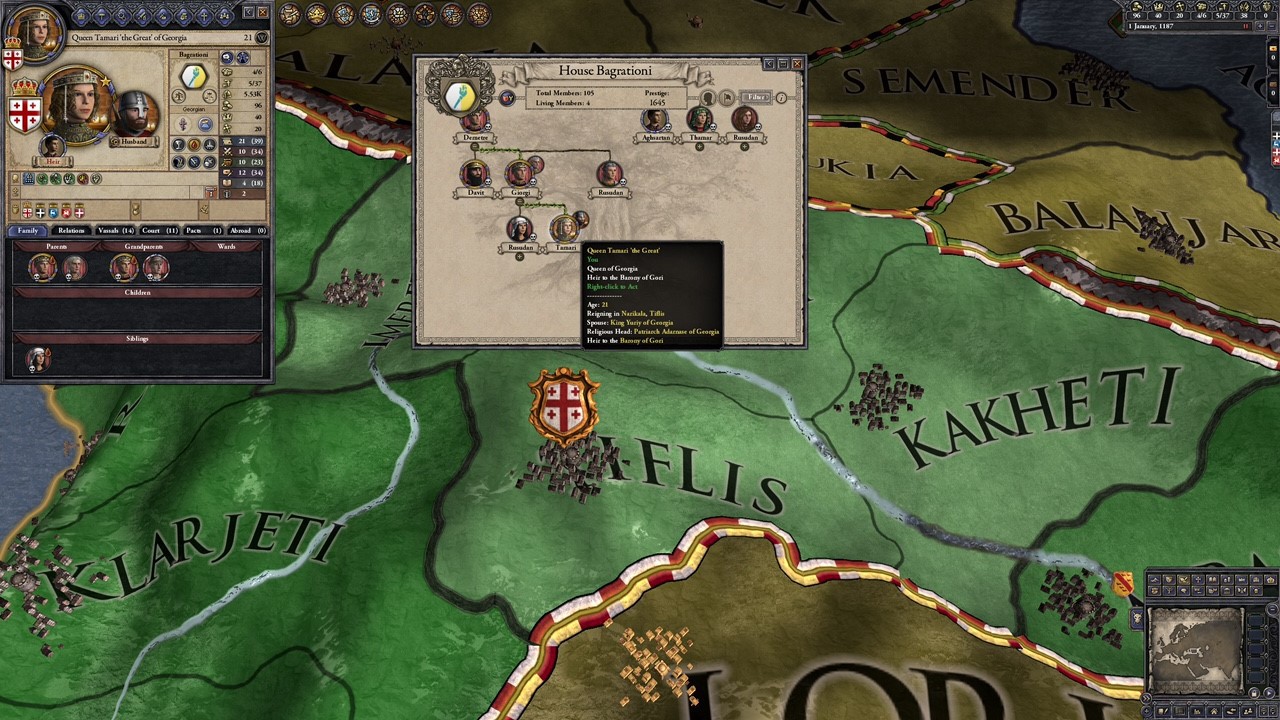
Boy, what a fun campaign that was. I got rid of the husband early on for some reason and was later surprised that the real-world Tamari did the same. Hm.
(By the way, by getting rid of him I meant divorcing, not murdering him.)
And who is this queen, anyway? Born around 1160 — the game makes her somewhat younger — the daughter of king George III proved to be a skilled, highly intelligent ruler, and her reign is associated with the golden age in Georgia’s history. And now she’s a symbol for Georgians.
While the game itself did not provide all of these details, it made me curious. And this wasn’t the first time. I remember doing the digging on other rulers and states. When it comes to learning, though, Crusader Kings has much to offer even to those who don’t feel the need to check facts.
Just look at the game’s political map. Full of details, isn’t it? Historical figures and other characters, events, the ways things work in various kingdoms…that’s a lot to take in at once! Take a look at the kingdom of Navarra, for example. It’s the only European culture where women inherit on equal grounds with men, a testament to Basque society’s matriarchal roots. There’s so much you can learn from just a single playthrough!
And that’s so true for other Paradox Interactive’s grand strategies. Europa Universalis, Victoria, and Hearts of Iron alike, I always enjoyed studying maps and looking for all sorts of historical details.
Viva o Império de Portugal e Brasil!
A couple of weeks back I returned to Hearts of Iron IV. I picked Portugal, since this nation’s national focus tree (for those not familiar with the game: it’s used for major political and economic decisions that influence your entire playthrough) has been expanded in one of the DLCs.
I reviewed my army at the start of the game. Just a couple of infantry divisions and colonial guard known as the Caçadores. How did Portugal manage to stay neutral through the most of World War II, with all its colonies in Africa and Asia?
I began reading about my current leader, António de Oliveira Salazar, his autocratic regime and careful diplomacy that allowed the country to stay out of war until 1944, the year when he permitted American forces to use the facilities located in the Azores.
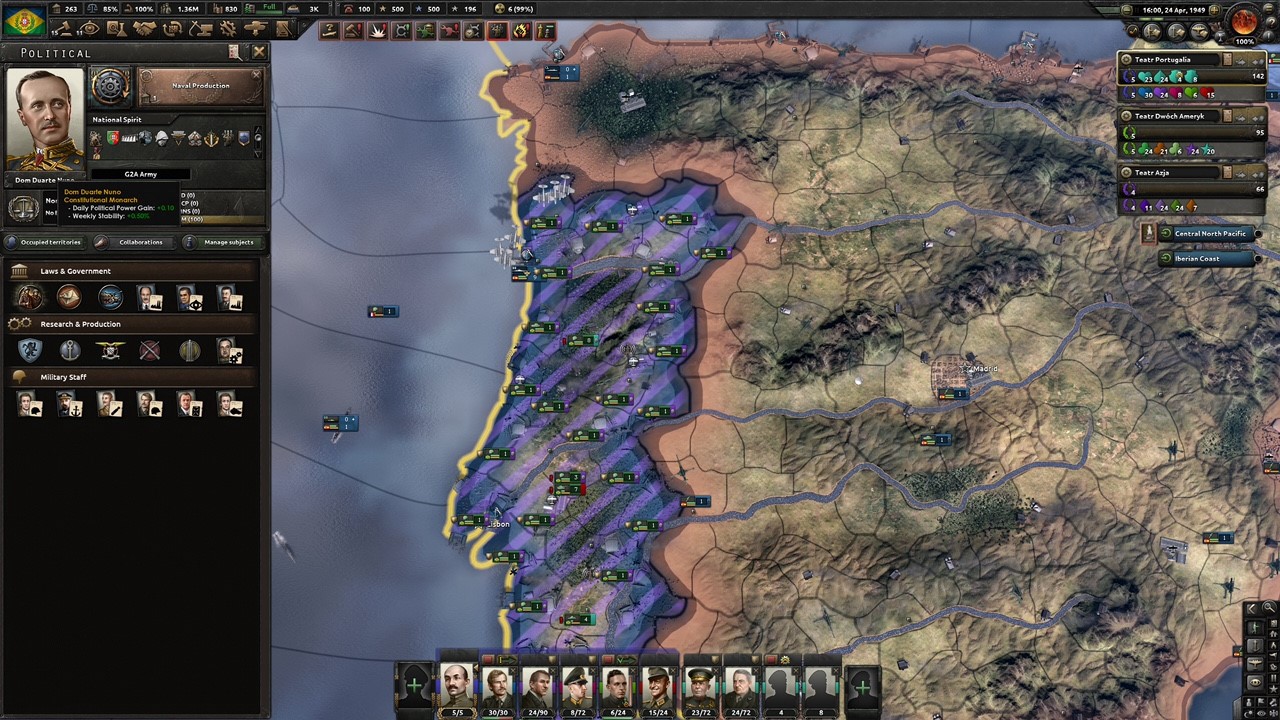
More interesting things popped up further during my session. I could unite Portugal and Brazil under the same dynasty, the House of Braganza. The royal family was expelled from the country in 1910 during a Republican revolution. You can bring Duarte Nuno de Bragança back from the exile, but the cost is great: you’ll lose political stability. I couldn’t resist, so I did just that and a couple busy game years later, I was a leader of a rising empire…
Not a historically accurate course of events, but I did learn a great deal about Portuguese politics of the era.
Whether you are inquisitive and eager to dig deeper or not, Hearts of Iron will surely teach you a thing or two about history. This series is chockful of facts and interesting tidbits.
Why not use video games at school, then?
This is an interesting question. Paradox’s games are certainly complex, especially if you get the DLCs. They’re also very time-consuming, so a full playthrough would probably take a semester or two. But even a couple classes featuring one of these games could be a great aid in teaching history and all its intricacies. Turns out Paradox is eager to cooperate with schools. The devs even offer their products free of charge for learning purposes.
And there’s a paper by researchers from Abdullah Gul University, titled “History-Themed Games in History Education: Experiences on a Blended World History Course.” The authors created a history course using Sid Meier’s Civilization by Firaxis, the Total War games by Creative Assembly, and Paradox’s grand strategy games I talked about just above.
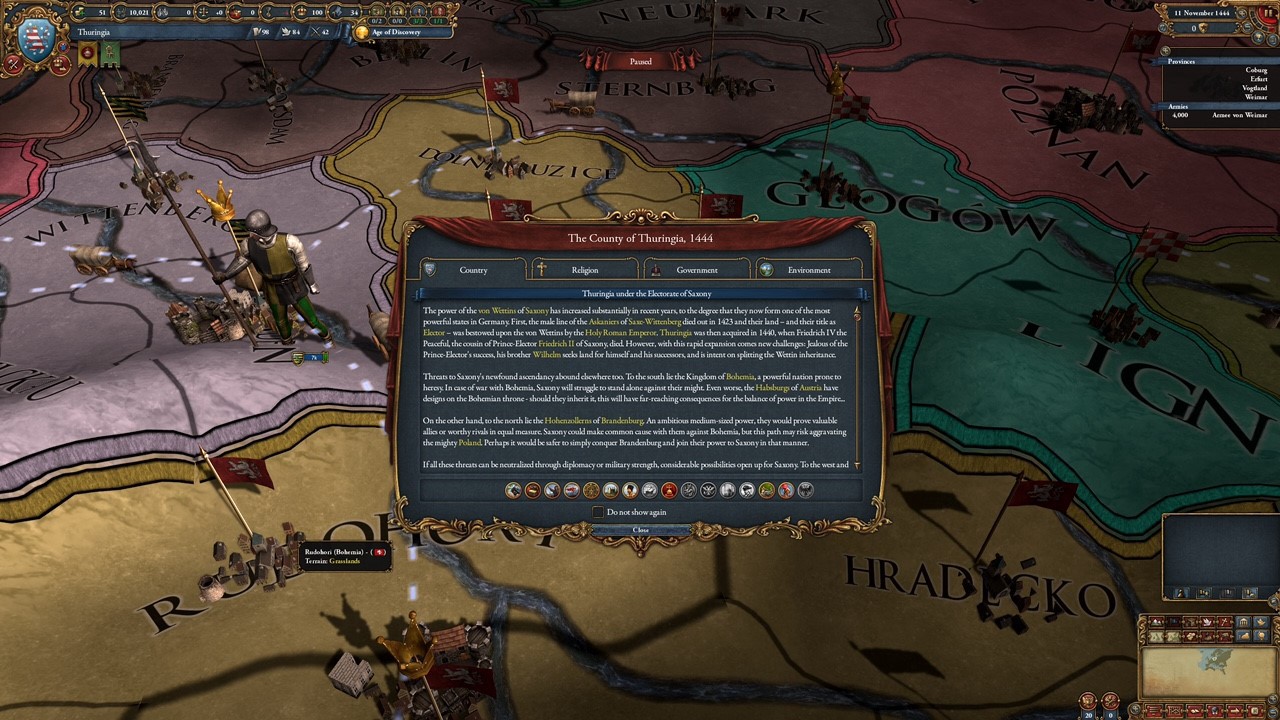
It turned out that Paradox’s games provided the broadest experience and were used for further development of the course, divided into 3 main parts: the Middle Ages (covered by Crusader Kings II), the early modern age (Europa Universalis IV), and the modern age (Hearts of Iron IV with the Great War mod). The modules consisted of one week of lectures and discussions, followed by another week of gaming sessions.
For example, Europa Universalis IV was used to explain the importance of standing armies replacing the levy system, the dawn of the global trade, and technological developments. The participants were asked to play as the Ottoman Empire in 1444, the Kingdom of Castille in 1492, a protestant member of the Holy Roman Empire before the Thirty-Year War, and France before the French Revolution.
After each module, the students were asked to write short essays on each topic, and a final, 2,000–3,000-word-long piece where they were to compare historical facts with their in-game achievements.
The results? Students gained in-depth geographical knowledge of the period. The immersion of the interactive aspect of the course made them more aware of complex interplay between politics, economy, religion and culture, and their impact on important events.
And the participants praised the experience-based aspect of learning.
Beyond Grand Strategy
Grand strategy games are too complex to be very popular in teaching. There are other titles that are perfect for the job, though.
Minecraft is one of them. This sandbox world-building game was extensively used before the pandemic, mostly in extracurricular courses. There’s even a special Education Edition where teachers have additional control over the game, so that they can prevent students from attacking each other, for example.
But while there are so many good things about it, the thing is Minecraft doesn’t feature any facts and knowledge, it is used to teach other stuff.
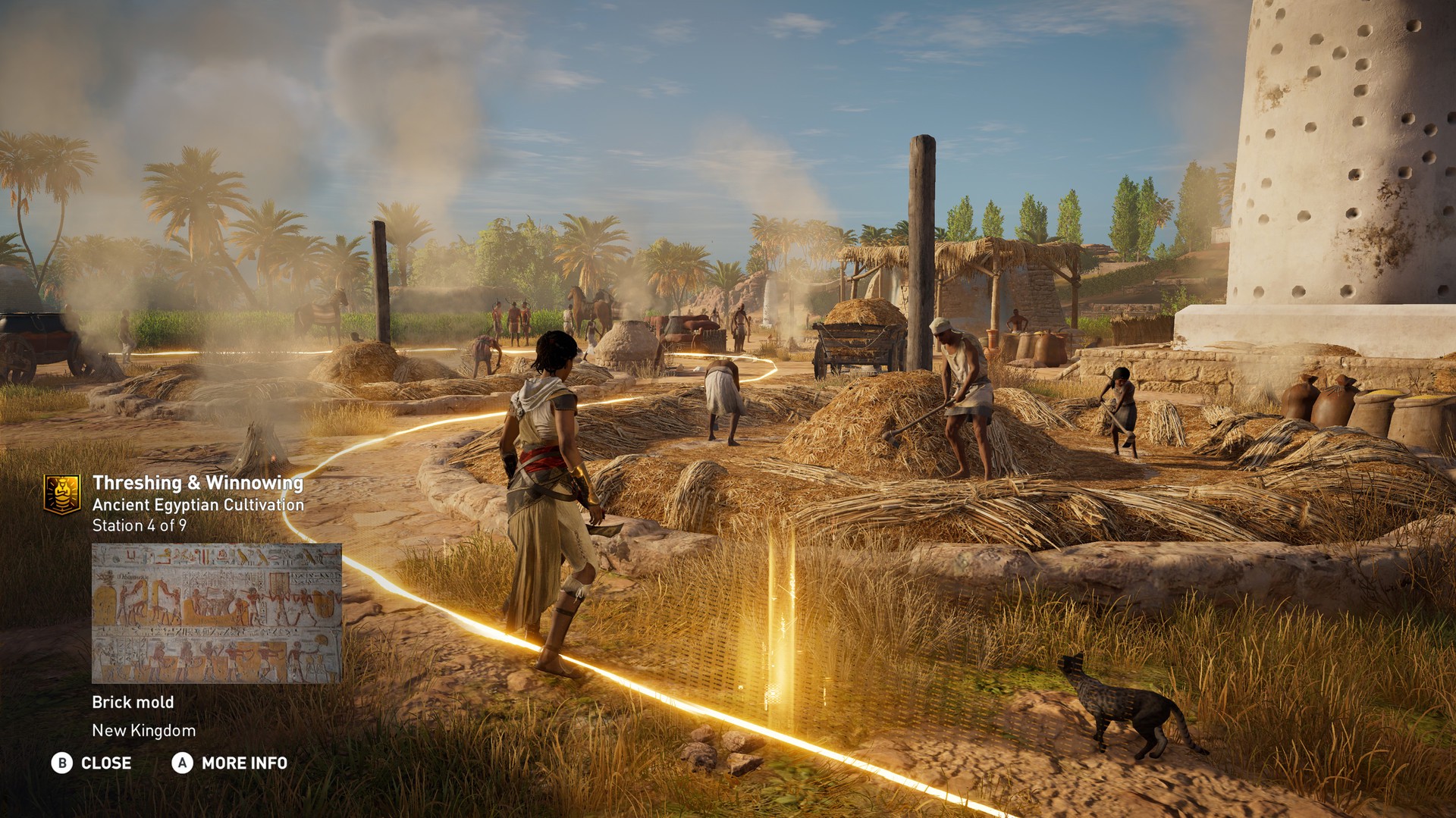
And then there are less obvious choices, such as the Assassin’s Creed series by Ubisoft. You can use these games to teach about ancient realms like Egypt (AC: Origins) or Greece (AC: Odyssey), for example. The entire series covers a whole lot of historical epochs, so there’s plenty to choose from. Origins and Odyssey feature a very useful Discovery Tour mode which lets you explore the world without combat and discover tons of interesting facts on the periods the games are set in . Ubisoft even created standalone versions of these modes and even made them free to download for a limited time back in May 2020. Valhalla, the latest game in the series, should get the Discovery Tour sometime in Autumn.
Sid Meier’s Civilization by Firaxis is another example of a great game that can be used for teaching history and social sciences. Each installment of the series features a Civipedia, which not only explains in-game concepts, but also contains tons of historical facts about nations, their leaders, warfare and wonders. This is where I first learned of the ancient Colossus, the Hanging Gardens or the concept of democracy, way before I was taught about these at school.
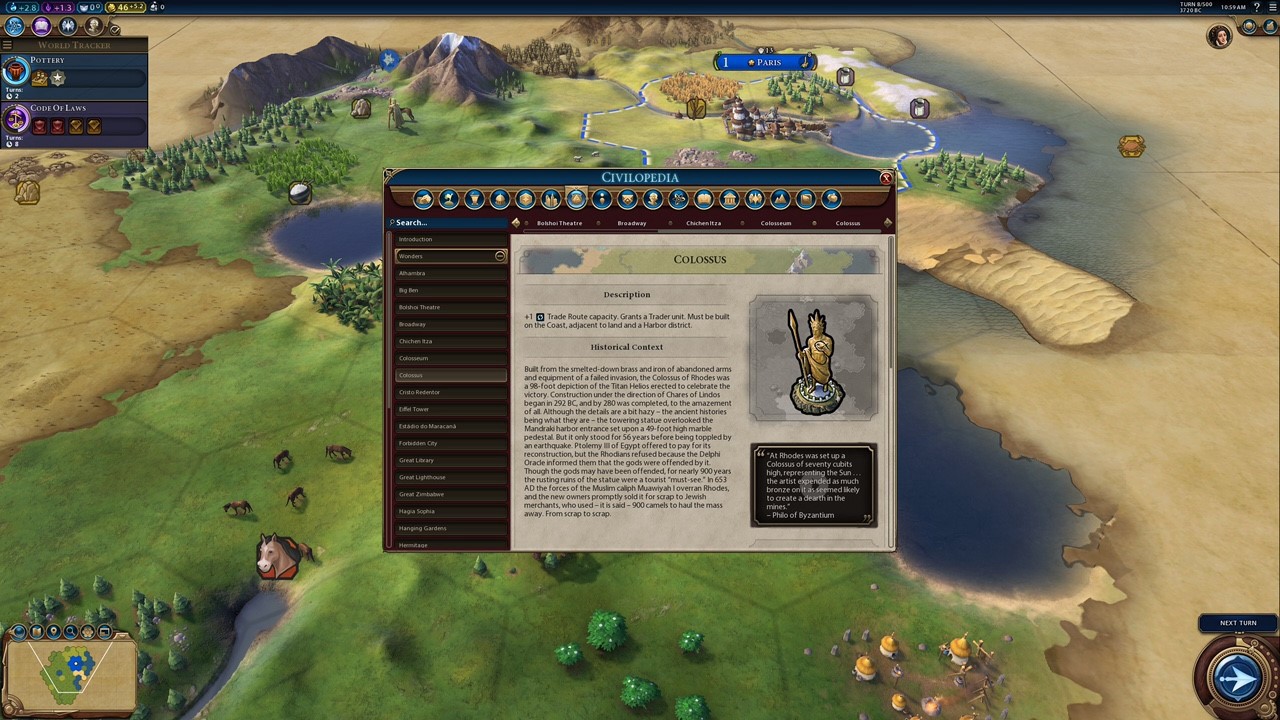
Civilization also teaches us about environmental hazards, showing the impact of industrial pollution. In the first Civ you could easily cause global warming and turn fertile lands into a desert. Ecological balance came back in a DLC for Civilization VI, Gathering Storm.
And guess who was introduced in another DLC, Rise and Fall: Queen Tamar herself!
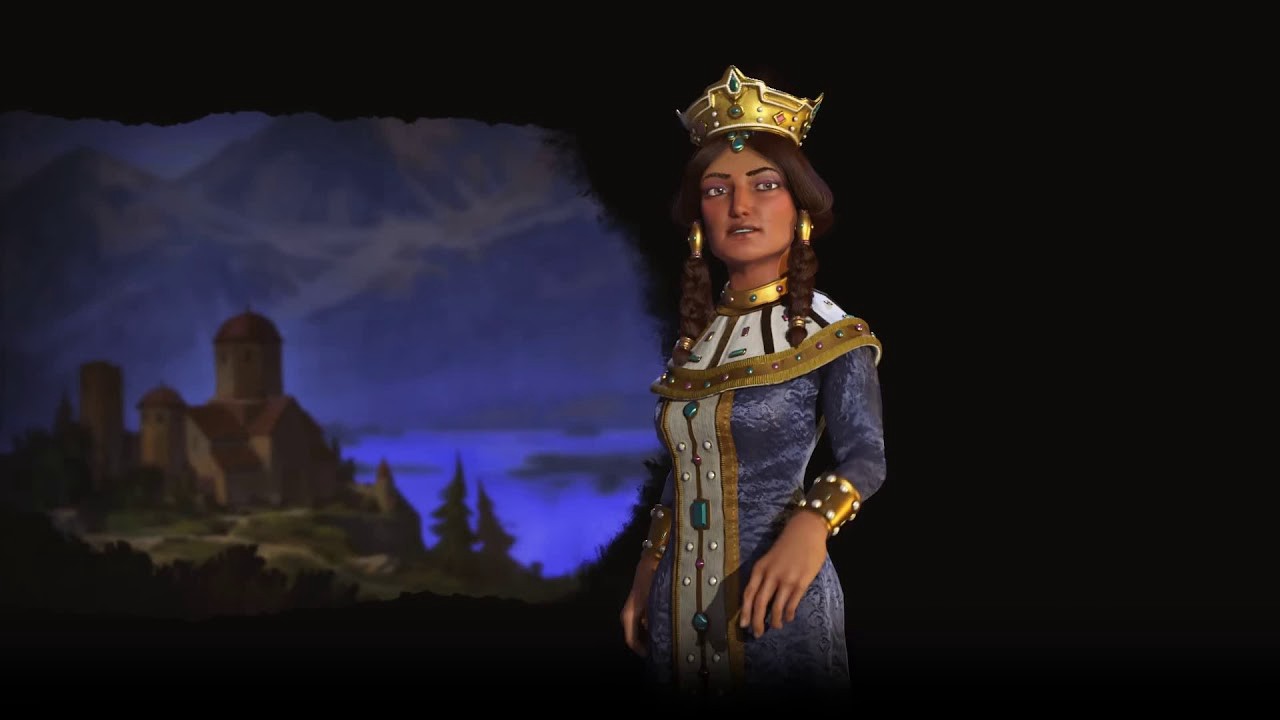
But mom, this is my homework!
We can all learn by playing games, and we usually do, even if we’re unaware this process is taking place. While most people will agree that video games improve your reflexes, help you develop social skills and train your memory, not everyone realizes that they can also teach you about history, politics, economics and such. Although it’s all entirely up to us. You can either, say, devour Civipedia’s content like crazy, or you can skip it altogether.
I’m happy to see that there are people who see the games’ educational potential. I believe they make teaching so much easier and classes way more interesting. This was especially true during the still unsolved Covid-19 situation, and will remain so in the post-pandemic era.
Do you want to learn more about gaming’s educational potential? Check out our G2A Academy: Video Games in Education course on Udemy, where two academic experts on gaming talk about its impressive impact on teaching, and the best games to use for school purposes — not just history, but other humanities and STEM subjects as well!
By Piotr Radzięda, Community Team Leader at G2A.COM